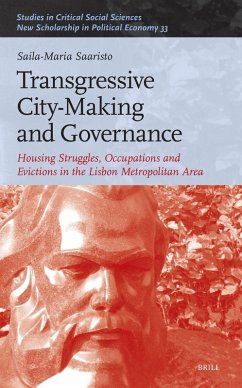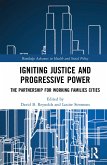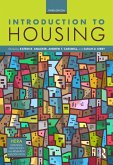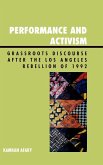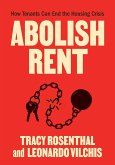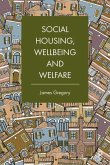Saila-Maria Saaristo
Transgressive City-Making and Governance
Housing Struggles, Occupations and Evictions in the Lisbon Metropolitan Area
Saila-Maria Saaristo
Transgressive City-Making and Governance
Housing Struggles, Occupations and Evictions in the Lisbon Metropolitan Area
- Gebundenes Buch
- Merkliste
- Auf die Merkliste
- Bewerten Bewerten
- Teilen
- Produkt teilen
- Produkterinnerung
- Produkterinnerung
Transgressive City-Making and Governance delves into the pressing global issue of housing exclusion and forced evictions, using Lisbon as a case study. This book, based on a 15-month engaged ethnography, critically examines council housing occupations and evictions, revealing how these practices challenge neoliberal urban governance and put forward alternative forms of urban citizenship. Exploring gendered, classed, and racialised dynamics, it sheds light on the transformative potential of housing occupations and the role of social movements in contesting systemic exclusion. It is essential…mehr
Andere Kunden interessierten sich auch für
![Igniting Justice and Progressive Power Igniting Justice and Progressive Power]() Igniting Justice and Progressive Power176,99 €
Igniting Justice and Progressive Power176,99 €![Happy City Happy City]() Charles MontgomeryHappy City13,99 €
Charles MontgomeryHappy City13,99 €![Introduction to Housing Introduction to Housing]() Introduction to Housing175,99 €
Introduction to Housing175,99 €![Performance and Activism Performance and Activism]() Kamran AfaryPerformance and Activism123,99 €
Kamran AfaryPerformance and Activism123,99 €![Abolish Rent Abolish Rent]() Tracy RosenthalAbolish Rent44,99 €
Tracy RosenthalAbolish Rent44,99 €![City and Environment City and Environment]() Christopher BooneCity and Environment77,99 €
Christopher BooneCity and Environment77,99 €![Social Housing, Wellbeing and Welfare Social Housing, Wellbeing and Welfare]() James GregorySocial Housing, Wellbeing and Welfare124,99 €
James GregorySocial Housing, Wellbeing and Welfare124,99 €-
-
-
Transgressive City-Making and Governance delves into the pressing global issue of housing exclusion and forced evictions, using Lisbon as a case study. This book, based on a 15-month engaged ethnography, critically examines council housing occupations and evictions, revealing how these practices challenge neoliberal urban governance and put forward alternative forms of urban citizenship. Exploring gendered, classed, and racialised dynamics, it sheds light on the transformative potential of housing occupations and the role of social movements in contesting systemic exclusion. It is essential reading for those interested in housing rights, social justice, and urban governance.
Produktdetails
- Produktdetails
- Verlag: Brill
- Seitenzahl: 240
- Erscheinungstermin: 12. Juni 2025
- Englisch
- Abmessung: 239mm x 155mm x 18mm
- Gewicht: 458g
- ISBN-13: 9789004678019
- ISBN-10: 9004678018
- Artikelnr.: 72664266
- Herstellerkennzeichnung
- Libri GmbH
- Europaallee 1
- 36244 Bad Hersfeld
- gpsr@libri.de
- Verlag: Brill
- Seitenzahl: 240
- Erscheinungstermin: 12. Juni 2025
- Englisch
- Abmessung: 239mm x 155mm x 18mm
- Gewicht: 458g
- ISBN-13: 9789004678019
- ISBN-10: 9004678018
- Artikelnr.: 72664266
- Herstellerkennzeichnung
- Libri GmbH
- Europaallee 1
- 36244 Bad Hersfeld
- gpsr@libri.de
Acknowledgements ix
List of Figures and Tables x
Abbreviations xii
1 From Old to New Housing Struggles 1
1 Occupations as a Form of Making the City 1
2 Hands Off Our Homes! 7
2.1 Long-Standing Housing Crises: Migration and Postcolonial
Housing Exclusions 8
2.2 Residual Social Housing 13
2.3 New Housing Crises: Financialisation of Housing and
Real-Estate Speculation 15
2.4 The New Urban Housing Policies 19
2.5 The Global Context: Forced Evictions and Rising Housing Costs 22
3 A Researcher in Solidarity? Methodological Reflections 24
3.1 Antecedents 24
3.2 Research ‘Sites’ 26
3.3 Critical Ethnography and Activist Research 29
2 Urban Governance and City-Making 33
1 Introduction 33
2 Urban Neoliberalisms 34
2.1 Neoliberalism as a Capitalist Project 34
2.2 Displaced Survival – Gender, Labour and Housing Precarity 39
2.3 Neoliberalism as a Mode of Government 42
3 Urban Contestations 45
3.1 Examining Occupations 45
3.2 Insights from the Feminist Literature of Agency 48
3.3 Insights from Subaltern Urbanisms 50
3.4 Coalescence into Collective Action 53
3.5 Movement Strategies 57
3 Gendered, Classed and Racialised Forms of Housing Precarity 62
1 Why Occupations? 62
2 Housing Histories: Cycles of Displacement and Dispossession 67
2.1 Immigrating to Portugal and Resettlements 67
2.2 Displacement Caused by Violence at Home 69
vi Contents
2.3 Housing Exclusions Due to Inaccessible Social Housing 71
2.4 Displacement Due to Unaffordability of Private Rental Sector 76
2.5 Evictions Causing Further Dispossession 78
3 To Conclude 82
4 Governing Access to Housing and Evictions 85
1 Governing against and through Informality 85
2 Managing Resettlements: Participation in Older
Housing Operations 87
3 Invited Spaces of Participation: Current Co-governance of the
Council Estates 91
4 Managing Council Estates: Invisible Elbows, Competition and
Visible Fists 94
4.1 Invisible Elbows: Faulty Management Intersecting with
Social Biases 94
4.2 Neoliberal Responses: In-the-Meanwhile Solutions,
Self-responsibilisation and Competition 99
4.3 Visible Fists: Evicting Families from Access to Housing 104
5 To Conclude 111
5 Makeshift Urbanism by Occupation 114
1 Occupations: Making the Urban from Below 114
2 Previous Occupations 116
3 Framing Occupations – a Crime, or a Last Resort? 120
4 Practices of Occupation 124
4.1 Local Networks 124
4.2 Home-Making through Improvised Materialism 126
4.3 Rhythms of Hiding and Making Pressure: How to Negotiate with the
City Councils 127
4.4 Building Alliances 132
5 To Conclude 134
6 Social Movements against Evictions: the Habita Association’s
Contribution to the Struggle 138
1 Social Movements against Evictions 138
2 Housing Movements in Portugal 141
3 Theoretical Practices 144
3.1 Real Estate Speculation, Housing Financialisation and Neoliberal
Housing Policies 144
3.2 Racism and Gender-Based Violence 146
viiContents
4 Building Political Subjectivities 148
4.1 Constraints on Participation 148
4.2 Breaking the Model of Personal Responsibilisation 153
5 Strategising Collective Action 156
5.1 Invented, Invited, and In-between Strategies 156
5.2 Conquering Space by Transgression 158
5.3 Building Bases with Support and Negotiation 163
5.4 Operating in Invited Spaces 166
6 To Conclude 169
7 Conclusion: Subjectivities of Evictions and Occupations 170
References 183
Appendix 216
Index 218
List of Figures and Tables x
Abbreviations xii
1 From Old to New Housing Struggles 1
1 Occupations as a Form of Making the City 1
2 Hands Off Our Homes! 7
2.1 Long-Standing Housing Crises: Migration and Postcolonial
Housing Exclusions 8
2.2 Residual Social Housing 13
2.3 New Housing Crises: Financialisation of Housing and
Real-Estate Speculation 15
2.4 The New Urban Housing Policies 19
2.5 The Global Context: Forced Evictions and Rising Housing Costs 22
3 A Researcher in Solidarity? Methodological Reflections 24
3.1 Antecedents 24
3.2 Research ‘Sites’ 26
3.3 Critical Ethnography and Activist Research 29
2 Urban Governance and City-Making 33
1 Introduction 33
2 Urban Neoliberalisms 34
2.1 Neoliberalism as a Capitalist Project 34
2.2 Displaced Survival – Gender, Labour and Housing Precarity 39
2.3 Neoliberalism as a Mode of Government 42
3 Urban Contestations 45
3.1 Examining Occupations 45
3.2 Insights from the Feminist Literature of Agency 48
3.3 Insights from Subaltern Urbanisms 50
3.4 Coalescence into Collective Action 53
3.5 Movement Strategies 57
3 Gendered, Classed and Racialised Forms of Housing Precarity 62
1 Why Occupations? 62
2 Housing Histories: Cycles of Displacement and Dispossession 67
2.1 Immigrating to Portugal and Resettlements 67
2.2 Displacement Caused by Violence at Home 69
vi Contents
2.3 Housing Exclusions Due to Inaccessible Social Housing 71
2.4 Displacement Due to Unaffordability of Private Rental Sector 76
2.5 Evictions Causing Further Dispossession 78
3 To Conclude 82
4 Governing Access to Housing and Evictions 85
1 Governing against and through Informality 85
2 Managing Resettlements: Participation in Older
Housing Operations 87
3 Invited Spaces of Participation: Current Co-governance of the
Council Estates 91
4 Managing Council Estates: Invisible Elbows, Competition and
Visible Fists 94
4.1 Invisible Elbows: Faulty Management Intersecting with
Social Biases 94
4.2 Neoliberal Responses: In-the-Meanwhile Solutions,
Self-responsibilisation and Competition 99
4.3 Visible Fists: Evicting Families from Access to Housing 104
5 To Conclude 111
5 Makeshift Urbanism by Occupation 114
1 Occupations: Making the Urban from Below 114
2 Previous Occupations 116
3 Framing Occupations – a Crime, or a Last Resort? 120
4 Practices of Occupation 124
4.1 Local Networks 124
4.2 Home-Making through Improvised Materialism 126
4.3 Rhythms of Hiding and Making Pressure: How to Negotiate with the
City Councils 127
4.4 Building Alliances 132
5 To Conclude 134
6 Social Movements against Evictions: the Habita Association’s
Contribution to the Struggle 138
1 Social Movements against Evictions 138
2 Housing Movements in Portugal 141
3 Theoretical Practices 144
3.1 Real Estate Speculation, Housing Financialisation and Neoliberal
Housing Policies 144
3.2 Racism and Gender-Based Violence 146
viiContents
4 Building Political Subjectivities 148
4.1 Constraints on Participation 148
4.2 Breaking the Model of Personal Responsibilisation 153
5 Strategising Collective Action 156
5.1 Invented, Invited, and In-between Strategies 156
5.2 Conquering Space by Transgression 158
5.3 Building Bases with Support and Negotiation 163
5.4 Operating in Invited Spaces 166
6 To Conclude 169
7 Conclusion: Subjectivities of Evictions and Occupations 170
References 183
Appendix 216
Index 218
Acknowledgements ix
List of Figures and Tables x
Abbreviations xii
1 From Old to New Housing Struggles 1
1 Occupations as a Form of Making the City 1
2 Hands Off Our Homes! 7
2.1 Long-Standing Housing Crises: Migration and Postcolonial
Housing Exclusions 8
2.2 Residual Social Housing 13
2.3 New Housing Crises: Financialisation of Housing and
Real-Estate Speculation 15
2.4 The New Urban Housing Policies 19
2.5 The Global Context: Forced Evictions and Rising Housing Costs 22
3 A Researcher in Solidarity? Methodological Reflections 24
3.1 Antecedents 24
3.2 Research ‘Sites’ 26
3.3 Critical Ethnography and Activist Research 29
2 Urban Governance and City-Making 33
1 Introduction 33
2 Urban Neoliberalisms 34
2.1 Neoliberalism as a Capitalist Project 34
2.2 Displaced Survival – Gender, Labour and Housing Precarity 39
2.3 Neoliberalism as a Mode of Government 42
3 Urban Contestations 45
3.1 Examining Occupations 45
3.2 Insights from the Feminist Literature of Agency 48
3.3 Insights from Subaltern Urbanisms 50
3.4 Coalescence into Collective Action 53
3.5 Movement Strategies 57
3 Gendered, Classed and Racialised Forms of Housing Precarity 62
1 Why Occupations? 62
2 Housing Histories: Cycles of Displacement and Dispossession 67
2.1 Immigrating to Portugal and Resettlements 67
2.2 Displacement Caused by Violence at Home 69
vi Contents
2.3 Housing Exclusions Due to Inaccessible Social Housing 71
2.4 Displacement Due to Unaffordability of Private Rental Sector 76
2.5 Evictions Causing Further Dispossession 78
3 To Conclude 82
4 Governing Access to Housing and Evictions 85
1 Governing against and through Informality 85
2 Managing Resettlements: Participation in Older
Housing Operations 87
3 Invited Spaces of Participation: Current Co-governance of the
Council Estates 91
4 Managing Council Estates: Invisible Elbows, Competition and
Visible Fists 94
4.1 Invisible Elbows: Faulty Management Intersecting with
Social Biases 94
4.2 Neoliberal Responses: In-the-Meanwhile Solutions,
Self-responsibilisation and Competition 99
4.3 Visible Fists: Evicting Families from Access to Housing 104
5 To Conclude 111
5 Makeshift Urbanism by Occupation 114
1 Occupations: Making the Urban from Below 114
2 Previous Occupations 116
3 Framing Occupations – a Crime, or a Last Resort? 120
4 Practices of Occupation 124
4.1 Local Networks 124
4.2 Home-Making through Improvised Materialism 126
4.3 Rhythms of Hiding and Making Pressure: How to Negotiate with the
City Councils 127
4.4 Building Alliances 132
5 To Conclude 134
6 Social Movements against Evictions: the Habita Association’s
Contribution to the Struggle 138
1 Social Movements against Evictions 138
2 Housing Movements in Portugal 141
3 Theoretical Practices 144
3.1 Real Estate Speculation, Housing Financialisation and Neoliberal
Housing Policies 144
3.2 Racism and Gender-Based Violence 146
viiContents
4 Building Political Subjectivities 148
4.1 Constraints on Participation 148
4.2 Breaking the Model of Personal Responsibilisation 153
5 Strategising Collective Action 156
5.1 Invented, Invited, and In-between Strategies 156
5.2 Conquering Space by Transgression 158
5.3 Building Bases with Support and Negotiation 163
5.4 Operating in Invited Spaces 166
6 To Conclude 169
7 Conclusion: Subjectivities of Evictions and Occupations 170
References 183
Appendix 216
Index 218
List of Figures and Tables x
Abbreviations xii
1 From Old to New Housing Struggles 1
1 Occupations as a Form of Making the City 1
2 Hands Off Our Homes! 7
2.1 Long-Standing Housing Crises: Migration and Postcolonial
Housing Exclusions 8
2.2 Residual Social Housing 13
2.3 New Housing Crises: Financialisation of Housing and
Real-Estate Speculation 15
2.4 The New Urban Housing Policies 19
2.5 The Global Context: Forced Evictions and Rising Housing Costs 22
3 A Researcher in Solidarity? Methodological Reflections 24
3.1 Antecedents 24
3.2 Research ‘Sites’ 26
3.3 Critical Ethnography and Activist Research 29
2 Urban Governance and City-Making 33
1 Introduction 33
2 Urban Neoliberalisms 34
2.1 Neoliberalism as a Capitalist Project 34
2.2 Displaced Survival – Gender, Labour and Housing Precarity 39
2.3 Neoliberalism as a Mode of Government 42
3 Urban Contestations 45
3.1 Examining Occupations 45
3.2 Insights from the Feminist Literature of Agency 48
3.3 Insights from Subaltern Urbanisms 50
3.4 Coalescence into Collective Action 53
3.5 Movement Strategies 57
3 Gendered, Classed and Racialised Forms of Housing Precarity 62
1 Why Occupations? 62
2 Housing Histories: Cycles of Displacement and Dispossession 67
2.1 Immigrating to Portugal and Resettlements 67
2.2 Displacement Caused by Violence at Home 69
vi Contents
2.3 Housing Exclusions Due to Inaccessible Social Housing 71
2.4 Displacement Due to Unaffordability of Private Rental Sector 76
2.5 Evictions Causing Further Dispossession 78
3 To Conclude 82
4 Governing Access to Housing and Evictions 85
1 Governing against and through Informality 85
2 Managing Resettlements: Participation in Older
Housing Operations 87
3 Invited Spaces of Participation: Current Co-governance of the
Council Estates 91
4 Managing Council Estates: Invisible Elbows, Competition and
Visible Fists 94
4.1 Invisible Elbows: Faulty Management Intersecting with
Social Biases 94
4.2 Neoliberal Responses: In-the-Meanwhile Solutions,
Self-responsibilisation and Competition 99
4.3 Visible Fists: Evicting Families from Access to Housing 104
5 To Conclude 111
5 Makeshift Urbanism by Occupation 114
1 Occupations: Making the Urban from Below 114
2 Previous Occupations 116
3 Framing Occupations – a Crime, or a Last Resort? 120
4 Practices of Occupation 124
4.1 Local Networks 124
4.2 Home-Making through Improvised Materialism 126
4.3 Rhythms of Hiding and Making Pressure: How to Negotiate with the
City Councils 127
4.4 Building Alliances 132
5 To Conclude 134
6 Social Movements against Evictions: the Habita Association’s
Contribution to the Struggle 138
1 Social Movements against Evictions 138
2 Housing Movements in Portugal 141
3 Theoretical Practices 144
3.1 Real Estate Speculation, Housing Financialisation and Neoliberal
Housing Policies 144
3.2 Racism and Gender-Based Violence 146
viiContents
4 Building Political Subjectivities 148
4.1 Constraints on Participation 148
4.2 Breaking the Model of Personal Responsibilisation 153
5 Strategising Collective Action 156
5.1 Invented, Invited, and In-between Strategies 156
5.2 Conquering Space by Transgression 158
5.3 Building Bases with Support and Negotiation 163
5.4 Operating in Invited Spaces 166
6 To Conclude 169
7 Conclusion: Subjectivities of Evictions and Occupations 170
References 183
Appendix 216
Index 218

